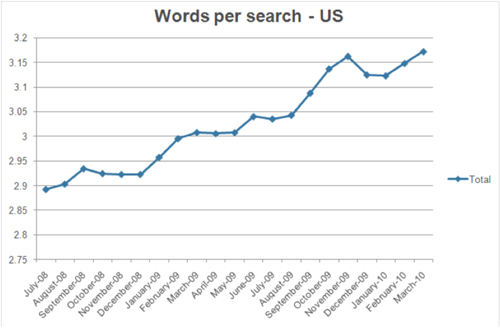What History Tells us About Facebook's Potential as a Search Engine, Part 1
Is Facebook on its way to becoming a serious player in the search marketplace?
Is Facebook on its way to becoming a serious player in the search marketplace?
The number of searches conducted on Facebook surged over the past year, more than doubling to 647 million searches in the U.S. as of March. While their numbers still pale in comparison to the 10.5 billion searches generated on Google during the same month, Facebook’s footprint in search is significant enough that many in the search community are beginning to sit up and take notice. More people are asking if Facebook is on its way to becoming a serious player in the search marketplace.
To evaluate its potential, it’s illustrative to consider how search has evolved to the current point in time. Historically, three primary factors coalesce to drive change in the evolution of an emerging market: technology, marketing, and consumer behavior. As each of these factors evolves over time, new developments tend to occur in a symbiotic fashion.
To use a non-technology example as reference, think about Henry Ford’s application of the assembly line to automobile manufacturing (technology) and the evolving relationship with both marketing and consumer behavior in the United States. Cars began to be mass produced (technology), driving down the price for entry and allowing even average citizens the opportunity to become owners and begin driving everywhere possible (consumer behavior). In order to address the driving demand, more and better roads/highways were built across the country, and as a result billboards and road side gas stations/shopping began to pop up (marketing), which in turn created more demand, fueling further investments in technology, lowering the price to the consumer even further to bring new consumers into the market.
At this point, our driving culture truly began to take shape and evolve into our relationship with our cars that we have today. The circular nature of these factors influencing one another becomes apparent.
A similar type of evolution can be seen when we look back at the maturation of the search marketplace. The Internet became widely available in the 1990s and consumers hit the web to consume information, interact socially, shop, and generally run their lives online. As this behavior progressed, marketers of all kinds began to spend dollars online.
Although search engines cropped up in the early days, the quality of results simply weren’t good enough in the beginning to drive people to use search as their main channel for web navigation, and “portals” became the primary channel for exploration. It’s not surprising given the early quality of results that we tended to search on more obtuse terms such as “shoes” or “news,” which had little specificity.
With the launching of Google’s PageRank technology, incredibly relevant search results launched a revolution in both marketing and consumer behavior that has forever changed our economic and behavioral landscape. Because this technology, pioneered by Google, generated more relevant results, searchers began to feel comfortable with extending the length of their search phrases, in effect being more specific about their needs.
On top of this developing consumer behavior, this evolution of specificity has encouraged innovation from marketers en masse. Marketer strategy continues to improve with well researched paid search campaigns and increasingly more optimized landing pages to accommodate these longer phrases.

The average number of words per search in the United States in March was nearly 3.2 words and it has been growing for some time. This is a far cry from our original limitations of “shoes” in order to now search for and find a pair of “nike air jordans.”
What this trend illustrates is that as the technology and sophistication of search results gain, consumers have learned to adapt their searching behavior to reflect the increased specificity the results will convey. This change in behavior enables them to inch closer to a result that reflects the true, original intent of their search. But increasingly there is new information available on the web — especially as it relates to one’s social graph — that offers potential for even greater specificity; one that filters results through the people, and not just the pages, of highest relevance to you.
In part two, we’ll explore in greater detail exactly how searches on Facebook are evolving and what that might mean for the future of social search.